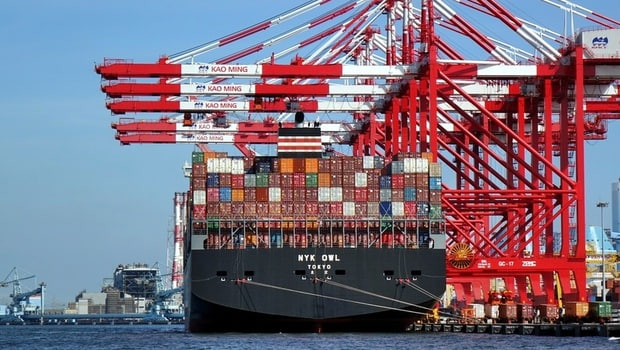美国《生物安全法案》悬而未决:对中国生物医药产业的潜在影响及应对策略
元描述: 深入探讨美国《生物安全法案》的最新进展、对中国生物医药产业(尤其是CXO行业)的潜在影响,以及中国企业如何应对这一挑战。关键词:生物安全法案,NDAA,CXO,药明康德,药明生物,华大智造,中美关系,生物医药产业
Hey there, folks! Ever felt like you're walking a tightrope in the global biotech arena? Well, buckle up, because the US's proposed Biosecurity Act has everyone on edge, especially those in the Chinese biopharmaceutical industry. Think of it as a high-stakes poker game, with billions on the line. This isn't just another headline; it's a seismic shift with the potential to redraw the landscape of international collaboration in the life sciences. This article dives deep into the intricacies of this legislation, analyzing its potential impact, exploring the responses of key players, and offering strategic insights for navigating these turbulent waters. We'll unpack the political maneuvering, the economic fallout, and the long-term implications for both American and Chinese companies. We'll even spill the tea on insider perspectives and predictions for the future. So, grab your coffee, settle in, and let's unravel the complexities of the Biosecurity Act – it's a story filled with twists, turns, and potentially game-changing outcomes. Prepare to be informed, intrigued, and maybe even a little bit scared!
生物安全法案对中国CXO的影响
The proposed US Biosecurity Act has cast a long shadow over the Chinese Contract Research, Development, and Manufacturing Organization (CXO) industry, sending shockwaves through companies like WuXi AppTec and Wuxi Biologics. The uncertainty surrounding the Act’s potential passage has created significant volatility in the stock market, with dramatic price swings reflecting the market’s anxieties. Remember the rollercoaster ride of December 2023? Yeah, that was fueled by these concerns.
This Act isn't just about regulations; it's about geopolitics. The underlying tension is the growing competition between the US and China in the life sciences. Many in the US believe the Act is necessary to protect its national security and technological advantage, fearing Chinese companies might gain access to sensitive research and intellectual property.
For Chinese CXOs, the implications are far-reaching. The potential for restrictions on collaborations could severely impact their business models, revenue streams, and future growth prospects. Many of these companies rely heavily on partnerships with US pharmaceutical firms. A sudden halt or significant reduction in these collaborations could cripple their operations.
Let's look at some key areas of concern:
Table 1: Potential Impacts of the Biosecurity Act on Chinese CXOs
| Impact Area | Potential Consequence | Mitigation Strategy |
|------------------------|-----------------------------------------------------------|------------------------------------------------------------|
| Collaboration Restrictions | Reduced access to US clients and technologies. | Diversify client base, invest in independent R&D. |
| Investment Restrictions | Difficulty securing US capital and partnerships. | Explore alternative investment sources, focus on domestic markets.|
| Regulatory Uncertainty | Increased compliance costs and operational complexities. | Proactive engagement with US regulatory bodies, robust compliance programs.|
| Reputational Damage | Negative perception among investors and clients. | Transparent communication, emphasis on ethical practices. |
The situation is far from static. The bill's journey through Congress has been anything but smooth sailing. It’s been a back-and-forth, a political tug-of-war between different factions, with amendments and revisions flying around like popcorn at a movie premiere.
NDAA and the Biosecurity Act: A Missed Connection?
The failure to include the Biosecurity Act in the 2025 National Defense Authorization Act (NDAA) was a significant setback for its proponents. Many analysts saw this as a sign that the Act, in its current form, lacks sufficient support to pass. The NDAA is typically a vehicle for attaching less controversial legislation, providing it with a smoother path to enactment. The Biosecurity Act’s exclusion suggests the level of opposition it faces.
This doesn't mean the Act is dead in the water. Far from it! It simply means the strategy needs a rethink. Expect a renewed push for passage in the next session of Congress, likely with significant revisions to address concerns raised during the previous attempts.
The Impact on Key Players: 药明康德 (WuXi AppTec) and Others
Companies like WuXi AppTec (药明康德) and WuXi Biologics (药明生物) have been directly impacted by the uncertainty surrounding the Biosecurity Act. Their stock prices experienced significant volatility, reflecting investor sentiment. While WuXi AppTec’s management has expressed confidence in navigating the challenges, the overall uncertainty remains a significant risk factor. The situation highlights the interconnectedness of the global pharmaceutical industry and the vulnerability of companies heavily reliant on international collaborations. Furthermore, smaller Chinese CXO firms are particularly vulnerable, lacking the resources and international presence of their larger counterparts.
Navigating the Uncertainty: Strategies for Chinese CXOs
So, what can Chinese CXO companies do to weather this storm? Here are some crucial strategies:
- Diversification: Reduce reliance on any single market or client. Explore opportunities in other regions and develop a more diversified client portfolio.
- Innovation: Invest heavily in R&D to develop proprietary technologies and capabilities. This will make them less dependent on external collaborations.
- Compliance: Develop robust compliance programs to ensure they meet all applicable regulations, both in China and the US.
- Communication: Maintain open and transparent communication with investors, clients, and stakeholders to manage expectations and build trust.
- Political Engagement: Engage with policymakers and industry associations to influence the legislative process and advocate for policies that support the industry.
The Future of the Biosecurity Act and US-China Relations
The future of the Biosecurity Act remains uncertain. The change of administration in the US could significantly alter its trajectory. While the bipartisan nature of the original Act suggests it will likely resurface in some form, the specifics of its content and impact remain to be seen. Its future will be inextricably linked to the broader developments in US-China relations. A more conciliatory approach might lead to a less restrictive version of the Act, while heightened tensions could result in even stricter measures. The situation calls for a wait-and-see approach, while simultaneously preparing for various outcomes.
Frequently Asked Questions (FAQ)
Q1: What exactly is the Biosecurity Act?
A1: The Biosecurity Act is a proposed US law aimed at preventing the transfer of sensitive biological technologies and information to China, primarily to protect national security and economic interests.
Q2: How will this affect my investments in Chinese CXO companies?
A2: The impact on your investments is uncertain, and highly dependent on the final version (if any) of the Act. However, increased regulatory scrutiny and potential restrictions on collaborations could negatively affect the financial performance of these companies.
Q3: Are all Chinese CXO companies equally vulnerable?
A3: No. Larger, internationally recognized companies have more resources and resilience than smaller firms. However, all are likely to experience some level of disruption.
Q4: What is the likelihood of the Biosecurity Act passing?
A4: It's difficult to predict, as it depends on many political and economic factors. However, the failure to include it in the NDAA suggests a potential hurdle.
Q5: Will this lead to a decoupling of the US and Chinese biopharmaceutical industries?
A5: The extent of decoupling is unclear. While restrictions are likely, complete separation is unlikely due to the complex nature of global supply chains and scientific collaborations.
Q6: What can I do to protect my business interests in this uncertain climate?
A6: Focus on diversification, innovation, and compliance. Maintain open communication with stakeholders and monitor regulatory developments closely.
Conclusion
The Biosecurity Act presents a significant challenge to the Chinese CXO industry. While the immediate future remains uncertain, proactive adaptation and strategic planning are crucial for navigating this complex landscape. The focus should be on building resilience, fostering innovation, and proactively engaging with stakeholders to minimize potential disruptions and leverage opportunities amidst the uncertainty. The long-term implications for both the Chinese and US biopharmaceutical sectors will depend heavily on how effectively both sides manage this challenging new chapter in their relationship. This is not just a battle of regulations; it's a battle of ideas and innovation, with the future of global healthcare hanging in the balance. Stay tuned. The game is far from over.



